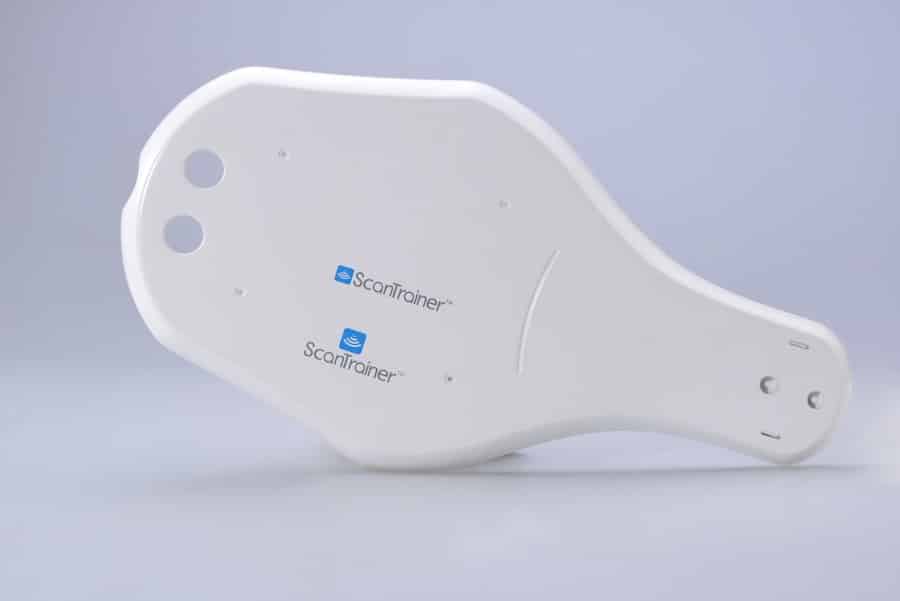The advent of technology has revolutionized various aspects of healthcare, and the management of chronic conditions like asthma is no exception. Smart inhalers represent a significant innovation in this domain, combining traditional inhalation devices with advanced digital technology. These devices are designed to enhance the management of asthma by providing real-time data, tracking medication usage, and offering personalized feedback to patients.
The integration of sensors and mobile applications allows for a more comprehensive approach to asthma care, particularly for children who may struggle with adherence to their medication regimens. Asthma is a prevalent respiratory condition that affects millions of children worldwide. It is characterized by inflammation and narrowing of the airways, leading to difficulty in breathing, wheezing, and coughing.
Smart inhalers aim to bridge the gap between traditional treatment methods and modern technology, offering a solution that empowers both children and their caregivers in managing this chronic condition more effectively.
Key Takeaways
- Smart inhalers are a new technology designed to help people manage their asthma more effectively.
- Smart inhalers can benefit children with asthma by improving medication adherence, monitoring symptoms, and integrating with telemedicine for remote care.
- These devices work by attaching to a regular inhaler and tracking medication usage, providing reminders, and collecting data on inhaler technique and environmental triggers.
- Smart inhalers allow for real-time monitoring of asthma symptoms, which can help healthcare providers make more informed treatment decisions.
- By integrating with telemedicine, smart inhalers can improve access to care and provide more personalized treatment plans for children with asthma.
Benefits of Smart Inhalers for Children with Asthma
One of the primary benefits of smart inhalers is their ability to provide real-time feedback on medication usage. For children with asthma, adherence to prescribed medication is crucial for preventing exacerbations and maintaining control over their symptoms. Smart inhalers can track when and how often medication is taken, allowing parents and healthcare providers to monitor adherence closely.
This feature is particularly beneficial for children who may forget to take their medication or may not fully understand the importance of consistent use. Moreover, smart inhalers often come equipped with educational resources that can help children learn about their condition in an engaging manner. Many devices include gamification elements that encourage children to use their inhalers correctly and regularly.
For instance, some smart inhalers reward users with points or badges for consistent use, transforming what can be a mundane task into an interactive experience. This not only promotes adherence but also fosters a sense of responsibility in young patients as they take charge of their health.
How Smart Inhalers Work

Smart inhalers are equipped with sensors that detect when the device is used, capturing data on the timing and frequency of inhaler usage. This data is then transmitted to a connected mobile application via Bluetooth or Wi-Fi, where it can be analyzed and displayed in an easily understandable format. The applications often feature dashboards that provide insights into medication adherence patterns, allowing users to visualize their progress over time.
Some smart inhalers also include reminders and alerts that notify users when it’s time to take their medication or when they are due for a refill. In addition to tracking usage, many smart inhalers are designed to assess the technique used during inhalation. Proper inhalation technique is critical for ensuring that medication reaches the lungs effectively.
Some devices provide real-time feedback on whether the user is inhaling correctly, which can significantly improve the delivery of medication. This feature is particularly important for children, who may struggle with the mechanics of using an inhaler properly. By providing immediate feedback, smart inhalers help users refine their technique, ultimately leading to better asthma control.
Monitoring Asthma Symptoms with Smart Inhalers
Monitoring asthma symptoms is a vital component of effective asthma management. Smart inhalers often come with integrated symptom tracking features that allow users to log their symptoms directly within the accompanying app. This functionality enables children and their caregivers to document instances of wheezing, coughing, or shortness of breath, providing valuable data that can be shared with healthcare providers during follow-up visits.
By having a comprehensive record of symptoms, healthcare professionals can make more informed decisions regarding treatment adjustments. Additionally, some smart inhalers are capable of integrating environmental data into their monitoring systems. For instance, they may provide information about air quality, pollen counts, or other environmental triggers that could exacerbate asthma symptoms.
This feature allows users to anticipate potential flare-ups based on external conditions and take proactive measures to avoid triggers. By combining personal symptom tracking with environmental data, smart inhalers offer a holistic approach to asthma management that empowers users to make informed decisions about their health.
Improving Adherence to Asthma Medication Regimens
Adherence to asthma medication regimens is often a challenge for many patients, particularly children who may not fully grasp the importance of consistent treatment. Smart inhalers address this issue by incorporating features designed specifically to enhance adherence. For example, many devices offer customizable reminders that can be set according to the user’s schedule, ensuring that children receive timely notifications about when to take their medication.
These reminders can be tailored to fit into daily routines, making it easier for young patients to remember their doses. Furthermore, the data collected by smart inhalers can be shared with parents and healthcare providers, creating a support system that encourages adherence. Parents can receive notifications about missed doses or irregular usage patterns, allowing them to intervene when necessary.
Healthcare providers can also access this data during consultations, enabling them to address adherence issues directly and provide tailored advice based on the patient’s specific needs. This collaborative approach fosters accountability and encourages children to take an active role in managing their asthma.
Integrating Smart Inhalers with Telemedicine

Enhanced Management of Asthma
By combining smart inhaler technology with telemedicine, healthcare providers can access real-time data during virtual appointments, leading to more effective management of asthma. This integration allows providers to review usage patterns and symptom logs before consultations, resulting in more productive discussions and personalized treatment plans.
Bridging Gaps in Care
Telemedicine can help bridge gaps in care for families living in remote or underserved areas where access to specialized asthma care may be limited. With smart inhalers providing critical data on medication adherence and symptom control, healthcare providers can offer guidance and support regardless of geographical barriers.
Empowering Families
This integration not only improves access to care but also empowers families by ensuring they have the resources they need to manage asthma effectively from the comfort of their homes.
Ensuring Privacy and Security of Smart Inhaler Data
As with any technology that collects personal health information, ensuring the privacy and security of data generated by smart inhalers is paramount. Manufacturers must adhere to strict regulations regarding data protection and privacy laws such as HIPAA (Health Insurance Portability and Accountability Act) in the United States or GDPR (General Data Protection Regulation) in Europe. These regulations mandate that personal health information be stored securely and only shared with authorized individuals.
To enhance security measures, many smart inhaler manufacturers implement encryption protocols that protect data during transmission between the device and mobile applications. Additionally, user authentication processes are often employed to ensure that only authorized users can access sensitive information. Transparency regarding data usage policies is also crucial; manufacturers should clearly communicate how data will be used and shared, allowing users to make informed decisions about their privacy.
Future Developments in Smart Inhaler Technology
The future of smart inhaler technology holds exciting possibilities as advancements in artificial intelligence (AI) and machine learning continue to evolve. One potential development is the incorporation of predictive analytics into smart inhalers, which could analyze historical data to forecast potential asthma exacerbations based on individual patterns and environmental factors. Such predictive capabilities would enable proactive interventions, allowing users to take preventive measures before symptoms escalate.
Additionally, future iterations of smart inhalers may include enhanced connectivity features that allow for seamless integration with other health monitoring devices such as wearables or mobile health applications. This interconnected ecosystem could provide a more comprehensive view of a patient’s health status, enabling healthcare providers to tailor treatment plans even further based on a holistic understanding of the patient’s lifestyle and health metrics.
The ongoing evolution of this technology promises not only improved outcomes for children with asthma but also a more engaging and supportive experience in managing their condition effectively over time.
A related article discussing the importance of software testing in the development of smart inhalers for monitoring asthma in children can be found at this link. Software testing plays a crucial role in ensuring the accuracy and reliability of these devices, which are essential for managing asthma in pediatric patients. By following best practices in software testing, developers can create smart inhalers that provide accurate data and improve the quality of care for children with asthma.
FAQs
What are smart inhalers?
Smart inhalers are devices that attach to traditional asthma inhalers and are equipped with sensors to track the usage of the inhaler. They can also provide reminders and alerts to help patients manage their asthma effectively.
How do smart inhalers monitor asthma in children?
Smart inhalers monitor asthma in children by tracking their inhaler usage, recording the date and time of each dose, and providing insights into their medication adherence and asthma symptoms. This data can be shared with healthcare providers to inform treatment decisions.
What are the benefits of using smart inhalers for children with asthma?
The benefits of using smart inhalers for children with asthma include improved medication adherence, better management of asthma symptoms, and the ability to track and analyze inhaler usage data to personalize treatment plans.
Are smart inhalers safe for children to use?
Smart inhalers are safe for children to use, as they do not pose any additional risks compared to traditional inhalers. However, it is important for parents and healthcare providers to ensure that children are using the devices properly and that the data collected is being used to inform their asthma management.
How can smart inhalers help parents and healthcare providers in managing children’s asthma?
Smart inhalers can help parents and healthcare providers in managing children’s asthma by providing real-time data on medication usage, identifying patterns in asthma symptoms, and facilitating communication between patients and healthcare teams. This can lead to more personalized and effective asthma management for children.

